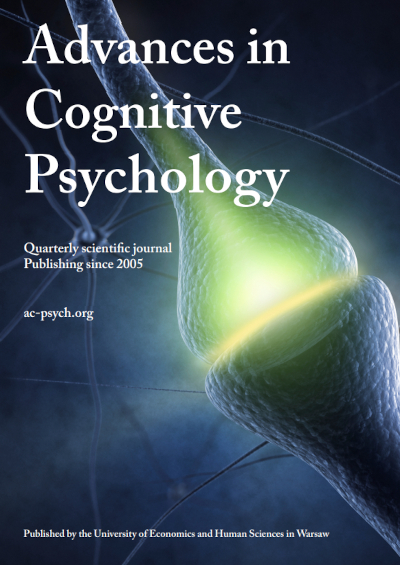Archive of all online content
-
Volume 21 Issue 4
pp. 309-500
(16 November 2025) -
Volume 21 Issue 3
pp. 212-308
(2 September 2025) -
Volume 21 Issue 2
pp. 120-211
(25 May 2025) -
Volume 21 Issue 1
pp. 1-93
(11 March 2025)
-
Volume 20 Issue 4
pp. 237-388
(20 November 2024) -
Volume 20 Issue 3
pp. 158-236
(19 August 2024) -
Volume 20 Issue 2
pp. 80-157
(24 June 2024) -
Volume 20 Issue 1
pp. 1-79
(1 March 2024)
-
Volume 19 Issue 4
pp. 1-105
(27 December 2023) -
Volume 19 Issue 3
pp. 211-333
(25 July 2023) -
Volume 19 Issue 2
pp. 111-200
(30 June 2023) -
Volume 19 Issue 1
pp. 1-110
(31 March 2023)
-
Volume 18 Issue 4
pp. 243-303
(31 December 2022) -
Volume 18 Issue 3
pp. 165-202
(30 September 2022) -
Volume 18 Issue 2
pp. 85-164
(30 June 2022) -
Volume 18 Issue 1
pp. 1-84
(31 March 2022)
-
Volume 17 Issue 4
pp. 250-291
(31 December 2021) -
Volume 17 Issue 3
pp. 193-249
(30 September 2021) -
Volume 17 Issue 2
pp. 99-192
(30 June 2021) -
Volume 17 Issue 1
pp. 1-98
(31 March 2021)
-
Volume 16 Issue 4
pp. 291-369
(31 December 2020) -
Volume 16 Issue 3
pp. 176-290
(30 September 2020) -
Volume 16 Issue 2
pp. 85-175
(30 June 2020) -
Volume 16 Issue 1
pp. 1-84
(31 March 2020)
-
Volume 15 Issue 4
pp. 236-317
(31 December 2019) -
Volume 15 Issue 3
pp. 169-235
(30 September 2019) -
Volume 15 Issue 2
pp. 75-168
(30 June 2019) -
Volume 15 Issue 1
pp. 1-74
(31 March 2019)
-
Volume 14 Issue 4
pp. 150-208
(31 December 2018) -
Volume 14 Issue 3
pp. 62-150
(30 September 2018) -
Volume 14 Issue 2
pp. 38-61
(30 June 2018) -
Volume 14 Issue 1
pp. 1-37
(31 March 2018)
-
Volume 13 Issue 4
pp. 267-322
(31 December 2017) -
Volume 13 Issue 3
pp. 190-266
(30 September 2017) -
Volume 13 Issue 2
pp. 121-189
(30 June 2017) -
Volume 13 Issue 1
pp. 1-120
(31 March 2017)
-
Volume 12 Issue 4 (special issue)
pp. 150-235
(31 December 2016) -
Volume 12 Issue 3
pp. 130-149
(30 September 2016) -
Volume 12 Issue 2
pp. 67-129
(30 June 2016) -
Volume 12 Issue 1
pp. 1-66
(31 March 2016)
-
Volume 11 Issue 4
pp. 118-135
(31 December 2015) -
Volume 11 Issue 3
pp. 64-117
(30 September 2015) -
Volume 11 Issue 2
pp. 31-63
(30 June 2015) -
Volume 11 Issue 1
pp. 1-30
(31 March 2015)
-
Volume 10 Issue 4
pp. 119-155
(31 December 2014) -
Volume 10 Issue 3
pp. 81-118
(30 September 2014) -
Volume 10 Issue 2
pp. 32-80
(30 June 2014) -
Volume 10 Issue 1
pp. 1-31
(27 February 2014)
-
Volume 9 Issue 4
pp. 156-223
(31 December 2013) -
Volume 9 Issue 3
pp. 112-155
(24 October 2013) -
Volume 9 Issue 2
pp. 53-111
(30 June 2013) -
Volume 9 Issue 1
pp. 1-52
(31 March 2013)
-
Volume 8 Issue 4
pp. 267-295
(31 December 2012) -
Volume 8 Issue 3
pp. 210-266
(27 September 2012) -
Volume 8 Issue 2
pp. 70-209
(28 June 2012) -
Volume 8 Issue 1
pp. 1-69
(29 March 2012)
-
Volume 7 Issue 2
pp. 55-156
(31 December 2011) -
Volume 7 Issue 1
pp. 1-54
(31 March 2011)
-
Volume 6 Issue 6
pp. 1-141
(31 December 2010)
-
Volume 5 Issue 5
pp. 1-134
(31 December 2009)
-
Volume 4 Issue 1
pp. 1-14
(31 March 2008)
-
Volume 3 Issue 4
pp. 419-465
(31 December 2007) -
Volume 3 Issue 3
pp. 363-417
(30 September 2007) -
Volume 3 Issue 1
pp. 1-361
(31 March 2007)
-
Volume 2 Issue 4
pp. 239-276
(31 December 2006) -
Volume 2 Issue 2
pp. 99-237
(30 June 2006) -
Volume 2 Issue 1
pp. 1-97
(31 March 2006)
-
Volume 1 Issue 1
pp. 1-16
()
Volume 14 Issue 1 (2018)
Letter from the Editors
Rob H. J. van der Lubbe, Ulrich Ansorge
In this first newsletter of 2018, we wanted to inform you about the current status of the journal. As our co-editor in chief (RL) recently moved from the University of Finance and Management (UFM) in Warsaw to the Adam Mickiewicz University (AMU) in Poznań, the ownership of the journal or the editorial board might possibly change in the near future. Currently, different options are explored, and we will keep you informed on future changes. These changes may also have an impact on article processing fees (see also below).
Elucidating the Functional Relationship Between Speed of Information Processing and Speed-, Capacity-, and Memory-Related Aspects of Psychometric Intelligence
Olivier Pahud, Thomas H. Rammsayer, Stefan J. Troche

Olivier Pahud, University of Bern, Institute of Psychology, Fabrikstrasse 8, CH-3012 Bern, Switzerland.
E-mail: olivier.pahud@psy.unibe.ch
Numerous studies reported a positive relationship between speed of information processing (SIP) and the g factor of intelligence. Only very few studies, however, examined SIP’s relationship to speed-, capacity-, and memory-related aspects of psychometric intelligence. In order to further elucidate this relationship, a Hick reaction time task and the Berlin Intelligence Structure (BIS) test were administered to 240 participants. From the BIS test, indicators of BIS-Capacity, BIS-Speed, and BIS-Memory were determined. By means of fixed-links modeling, we subdivided variance in reaction time from the Hick task into a component representing individual differences in speed directly related to the systematically increased number of possible responses and another component representing individual differences in speed associated with residual sources unrelated to the experimental variation of response alternatives. While the former speed component was primarily related to BIS-Capacity and, to a lesser extent, to BIS-Speed, the latter one was only weakly related to BIS-Speed but unrelated to BIS-Capacity. None of the two speed components from the Hick task showed an association with BIS-Memory. Our findings indicate that individual differences in SIP caused by experimentally increasing the number of possible responses were more strongly associated with capacity- than with speed-related aspects of psychometric intelligence. In addition, individual differences in SIP not associated with the experimental manipulation of response alternatives showed rather weak relationships to each of the three BIS operations and could be considered equally strong.
Keywords: reaction time, mental ability, Hick paradigm, mental speed approach, fixed-links modeling, Berlin Intelligence Structure TestLunching for Relaxation or Cognitive Control? After-Effects of Social and Solitary Meals
Birgit Stürmer, Guang Ouyang, Marina Palazova, Annekathrin Schacht, Manuel Martín-Loeches, Philip Rausch, Werner Sommer

Birgit Stürmer, International Psychoanalytic University, Stromstr. 1, 10555 Berlin, Germany.
Email: birgit.stuermer@ipu-berlin.de
Meals, especially when taken in company, may affect the diner’s mood. In line with findings that mood may alter cognitive control, a previous study by the authors found that after solitary meals, the Simon effect was diminished as compared to a premeal condition, whereas a social meal did not reduce the Simon effect. Here, we investigated whether this finding generalizes across different demands in cognitive control and, therefore, applied a flanker task. Obtained questionnaire data indicated differential effects in mood and relaxation of a social as compared to a solitary meal. Replicating our previous findings, the flanker compatibility effect decreased after a solitary meal but increased after a social meal. The present results support our previous findings with new evidence that a meal taken in a social context attenuates subsequent cognitive control processes compared with a solitary meal.
Keywords: meal, positive mood, cognitive controlThis Is How To Be a Rule Breaker
Robert Wirth, Anna Foerster, Oliver Herbort, Wilfried Kunde, Roland Pfister

Robert Wirth, Department of Psychology, JuliusMaximilians-University of Würzburg, Röntgenring 11, 97070 Würzburg, Germany.
E-mail: robert.wirth@uni-wuerzburg.de
Violating rules comes with cognitive conflict for the rule-breaker. Here, we probed for means to reduce the behavioral effects of this conflict by studying the combined impact of recency and frequency of rule violations. We found that violating a rule facilitated the initiation of a subsequent rule violation, while notable costs relative to rule-based responding remained in measures of response execution. Such costs during response execution vanished, however, when frequency and recency of rule violation worked in concert. That is, it is possible to overcome the costs of rule violation when (a) having violated this particular rule frequently and (b) having violated this particular rule very recently. Moreover, we demonstrated that recent rule violations reduce the costs of cognitive conflict in an unrelated interference task (Simon task). Based on these findings, we present a revised model of the cognitive processes underlying deliberate rule violations.
Keywords: rule violation, nonconformity, rule representation, movement trajectories


